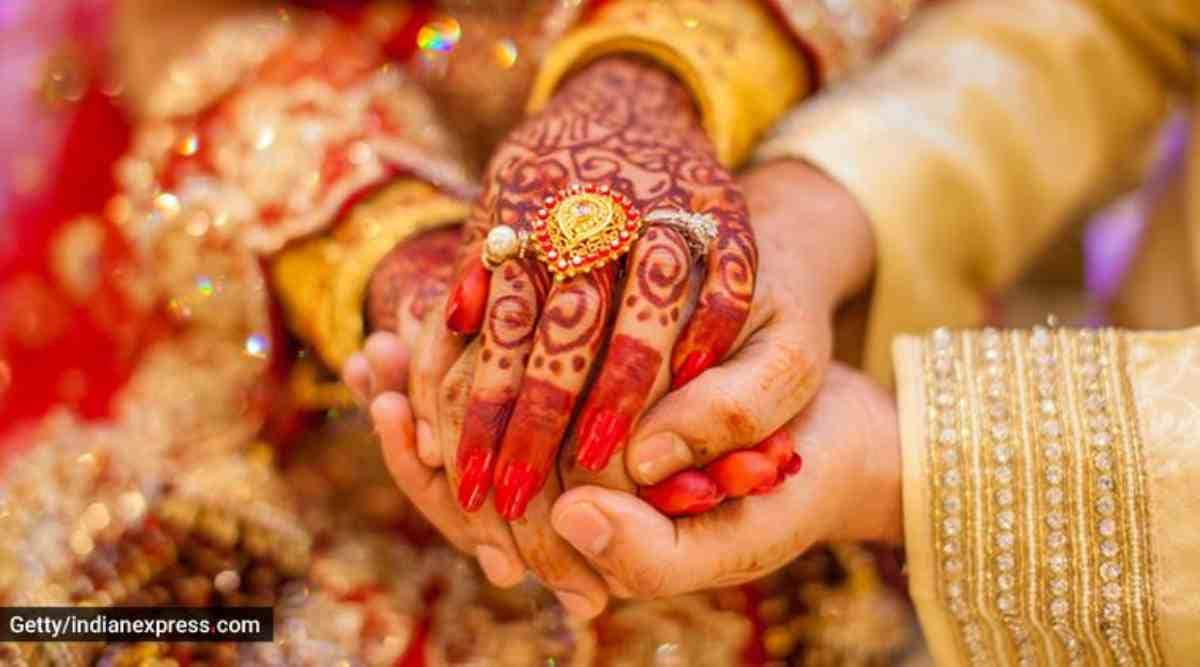 Father Savari Muthu, spokesperson of Delhi Archdiocese, says the Christian community welcomes the Government's move but warns of the proposed law's impact on marginalised societies in rural areas. (File/Getty)
Father Savari Muthu, spokesperson of Delhi Archdiocese, says the Christian community welcomes the Government's move but warns of the proposed law's impact on marginalised societies in rural areas. (File/Getty) EVEN AS the Government has sent the Prohibition of Child Marriage (Amendment) Bill 2021, which seeks to raise the legal age of marriage for women from 18 to 21 years, to a Parliamentary Standing Committee for scrutiny, representatives of minority communities have raised concerns on how the change will affect personal laws in the country.
While most minority communities have not opposed the raising of the age of marriage, they point out that personal laws have protection under the Constitution. According to the draft Bill, the proposed law will apply to all communities and, once enacted, will supersede existing marriage and personal laws.
Dr Shernaz Cama, the director of Jiyo Parsi, a nodal organisation that represents the Parsi community before the Government, says the move does not affect the community in which “men and women get married late”. But what needs to be scrutinised, she adds, is the possible changes in personal law.
“Women in the Parsi community do not get married under the age of 28-30 years, and men don’t usually marry under 35 years. This is much more than the national mean age of 22-24 years… (But) personal laws are protected under the Constitution. This must be studied by the standing committee, which must predominantly have women members,” said Cama, who is also director of UNESCO’s Parsi-Zoroastrian project PARZOR.
“I personally don’t think anyone has the right to interfere on the issue of when an individual can or cannot get married if that individual has reached adulthood,’’ she said.
Father Savari Muthu, spokesperson of Delhi Archdiocese, says the Christian community welcomes the Government’s move but warns of the proposed law’s impact on marginalised societies in rural areas.
“We believe that the rule of law of the land must supersede Canon law… In any case, within the Catholic as well as other communities, girls are getting married later. But this is primarily in urban areas. The concern is the rural areas, especially marginalised communities such as Scheduled Castes and Scheduled Tribes,” he said.
“The fear is that they will continue to get married younger and hide it. It is also possible that the new law may be misused to harass these communities, and young people. These are concerns that the Government must look into before the Bill becomes law,’’ he said.
The All India Muslim Personal Law Board (AIMPLB), which has spoken out against the proposed law, described it as “very irrational”.
“This is not just about personal laws, but also looking at what actually benefits women. The biggest requirement in India is the safety and security of women. And when a girl has to be kept at home, her safety becomes the responsibility of the parents, which is why she is often married off. When women and men are given the right to vote at 18 years, they can take any decision independently when they reach adulthood. How can the Government stop them from getting married?’’ said Niaz Ahmad Farooqui, general secretary, Jamiat-Ulama-i-Hind, and AIMPLB member.
“The Government also does not have the right to interfere with personal laws, which is the fundamental right of a community,’’ he said.
“We are definitely not advocating that girls get married younger. Before, they would even be married off at 12-13 years — we definitely don’t want that. We are also not opposing the move because we believe it has been made against the personal laws, but what is the scientific reasoning behind it? If a girl is too undernourished to get married at 18, how does this suddenly change at 21? The issue isn’t the age of marriage then, but poverty,” Farooqui said.
Mohsin Taqvi, Imam Jama Masjid (Kashmiri Gate), says that even in the Muslim community, girls are rarely getting married under the legal age.
“It isn’t like before when girls would have to get married young. Very rarely do girls get married before they turn 21-22 years. So in that sense, there is no problem with the increase in marriage age for women. However, the Government should still carry out extensive consultations with community leaders before passing the law,’’ the Imam said.
Data from the fifth edition of the National Family Health Survey (NFHS-5) show that 23.3 per cent of women aged 20-24 years were married under the age of 18 compared to 26.8 per cent in NFHS-4. The latest data also show that 6.8 per cent women were pregnant between 15-19 years compared to 7.9 per cent in NFHS 4.
According to NFHS-4, the median age of marriage for women in India between the ages of 25 to 49 years, is 19.8 in urban areas and 18.1 in rural areas. The lowest median age for women in this category among Hindus is 18.5 followed closely by Muslims at 18.6 years. The median age of marriage among Budhists is 19.2, Sikhs 20.9, Jains 21.2 and Christians 21.6.
NFHS-4 data also show that 28 per cent of women aged 18-29 and 17 per cent of men aged 21-29 marry before reaching the legal minimum age of marriage.
- The Indian Express website has been rated GREEN for its credibility and trustworthiness by Newsguard, a global service that rates news sources for their journalistic standards.

